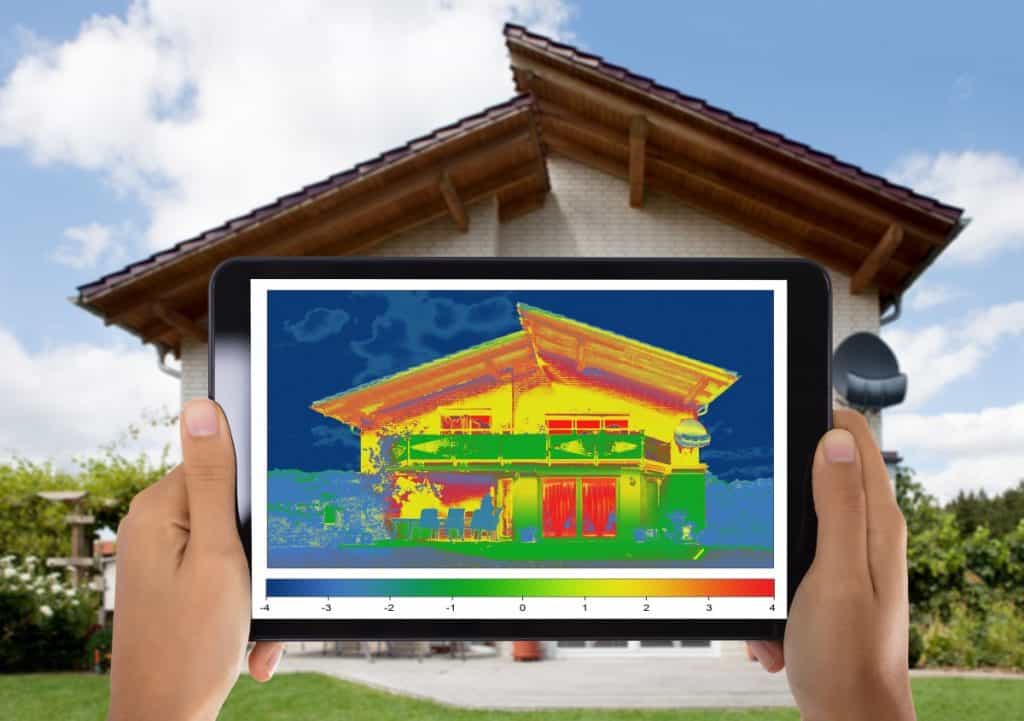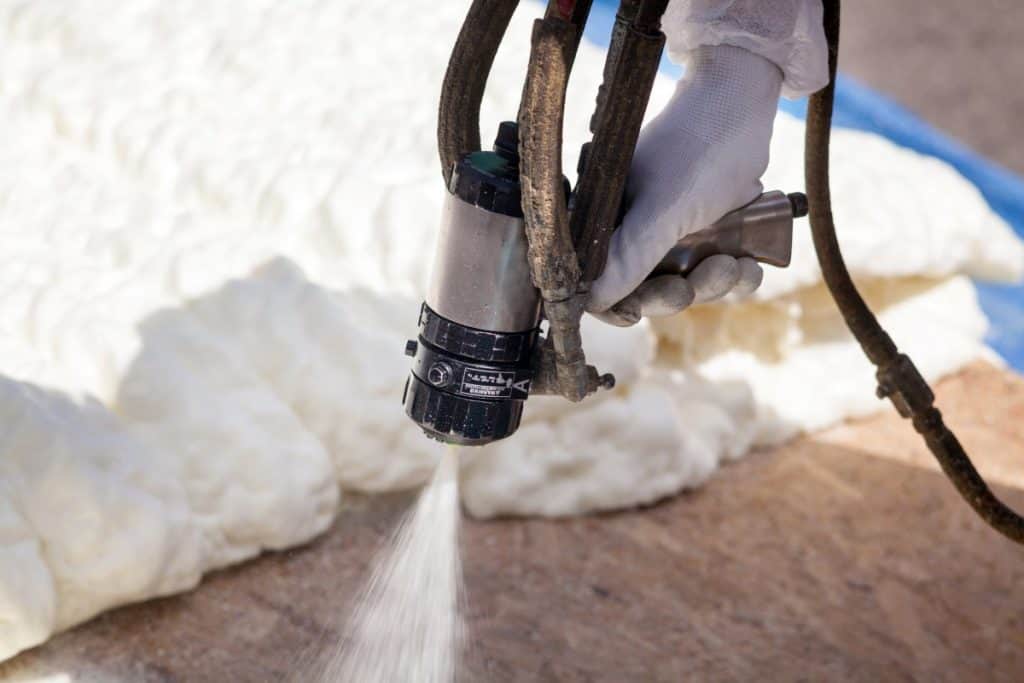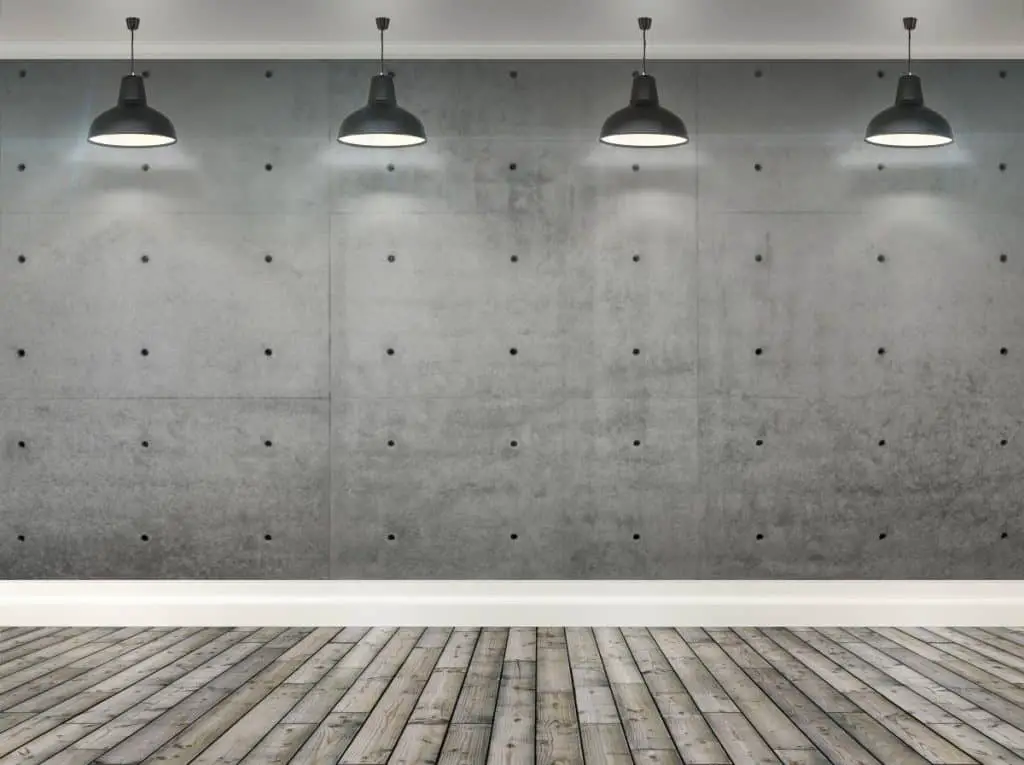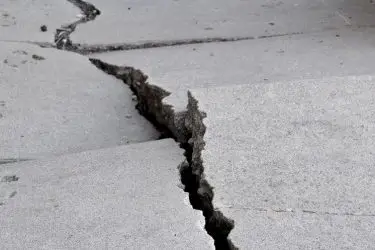On a hot summer’s day, nothing feels better than being surrounded by 4 concrete basement walls that automatically offer a cool and damp oasis from the scorching sun. While it might be nice in the summer, once winter comes, the last place you want to be is in that concrete basement that probably would feel like a cold dungeon. There are two options to fix this polarity between the seasons: either insulate the concrete walls or leave them as they are.
Concrete walls should be insulated because they do not offer any natural insulation on their own. Insulating concrete walls, with the correct insulation, can save money, reduce the probability of getting mold, and create a sound barrier in between rooms.
There are many explanations for why concrete should be insulated, read on to find out.

Table of Contents
Why Concrete Is Bad At Insulating
Materials are given an R-value or a value based on their resistance to the transfer of heat or cold from one side of a material to the other. The higher the R-value of a material, the more resistant it is to the transfer of heat or cold.
The R-value of concrete depends on the density of the concrete mixture and the slab itself. Usually, low-density concrete has a higher R-value than high density concrete.
So concrete is known for having a low R-value, which means that concrete is very good at storing heat or cold inside of itself, and then giving it off to the living space.

While concrete might be good at transferring heat or cold, it is not good at regulating the heat or cold that passes through it from another source, usually the sun.
Most houses (except concrete houses, of course) these days only use concrete for floors and in basements, both not exposed to the sun. That concrete floors are usually cold is something most people would agree on.
In order to better regulate the temperature of the living space, concrete needs to be insulated to ensure ideal temperatures all the time.
Benefits Of Insulating Concrete
A Insulatad House Is Energy Efficient
Recently, there has been a push to be more conscious of the environment that is around us. One way that we can make sure we are treating Mother Earth with respect is by using more energy-efficient means in our lives, such as LED bulbs or reducing, reusing, and recycling, to minimize the damage we do to the environment around us.
Anything that reduces the normally required energy to perform a certain task is considered to be energy efficient.
We can also be more energy efficient in our homes. Heating a concrete home or room that isn’t insulated requires a lot of resources, like fossil fuels such as oil, to ensure that one stays toasty warm during the winter.

Insulating concrete walls can actually help someone be more environmentally conscious by being more efficient.
The insulation would reduce the number of natural resources needed to heat the room or house by trapping and retaining the heat more effectively while blocking out the colder air from outside.
Using energy more effectively can reduce one’s carbon footprint due to the reduction of fossil fuels actually needed to heat the house.
Insulating Concrete Reduces Mold
Concrete is a very porous material. Because of all of the minuscule nooks and crannies that make up concrete, it is like a sponge when it comes to water. Water loves to find its way into concrete and reek all sorts of havoc in the material structure.
Water in concrete causes cracks which can wreck the integrity of the concrete, but it can also lead to mold issues.
Mold and mildew are a kind of fungi that grows in wet, cold, and dark conditions. Concrete basements and garages are highly susceptible to this issue. Mold and mildew can pose threats to one’s health if left untreated.

When concrete walls are sealed and insulated, it prevents water from being able to seep into the concrete walls themselves.
It is recommended to use spray foam to insulate concrete walls. There are two kinds of spray foam insulation: closed-cell and open-cell.
Closed-cell is most suggested to use to ensure that water is closed off from the concrete to prevent any unwanted damage.
Related article: Do Concrete Blocks Provide Insulation?
Insulating Concrete Walls Saves Money
It has been researched and proven that insulating concrete walls, especially in colder climates, can reduce heating costs.
During the winter months, the air outside and the earth beneath us can get cold. Very cold. Due to concrete’s low R-value, the cold outside is easily transferred through the concrete into the inside.
This makes the living space that is created by concrete walls or floor much colder than it would be if it was made out of another material.
If concrete walls are not insulated, then a majority of the winter will be spent trying to heat naturally cold living spaces which will make the price of heat for 3-4 months go through the roof.
Insulating concrete walls can reduce the amount of cold transfer that takes place between the outside elements and the concrete wall by adding another layer of material that has a much higher R-value. This layer of insulation can trap the heat from the inside, inside, and keep the cold outside.
Insulation Creates A Sound Barrier
Even though concrete can be a very thick material depending on how thick you pour it, you can still hear through it. The last thing you need is to be able to hear someone else blasting a movie or music in the next room while you are trying to sleep.

Insulation is able to create a sound barrier that prevents sound waves from reaching other rooms. This could drastically improve one’s house value and one’s life so they can better more shuteye.
It also helps reduce the sound from outside, which could be helpful if you live in a loud area, maybe in the city or close to a very busy road. Insulation can help reduce the sound that you hear in between levels.
This could be ideal for a concrete basement so that you can’t hear people when they walk upstairs.




